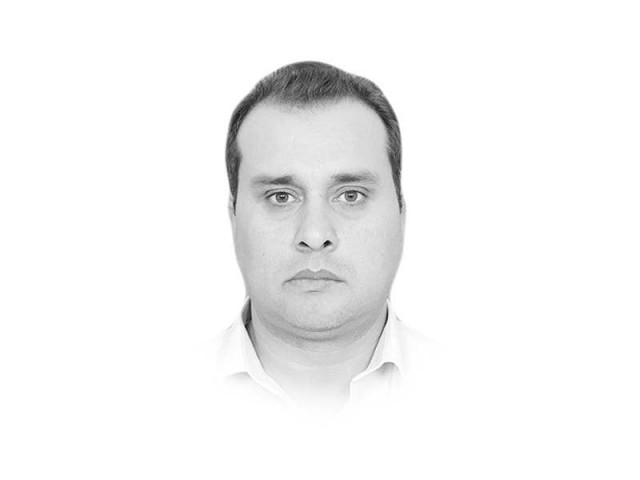Mainstreaming persons with disability
Disability is taken synonymous with dependency and a burden on society

The writer is executive director of the Centre for Governance and Public Accountability and holds a master’s degree in Development Studies from the University of Rotterdam
Abdullah is also one of around two million visually impaired persons in Pakistan. One can imagine how he would have transformed himself to cope with the social and physical barriers faced by persons with disabilities (PWD) in Pakistan, who form almost 10 per cent of the country’s total population. He was not visually impaired by birth, but lost his sight gradually till he could not see any more while pursuing his Master’s in English literature. His account of his pre-disability and post-disability situation is revealing as it details the treatment meted out by society and state to PWDs. In his words, he “survived in Pakistan despite the system, not because of the system”. Abdullah has vividly described the ordeal of physically impaired persons in Pakistan in his book Disabled by Society. There are various dangerous beliefs and stereotypes attached to disability but one must remember that these are all invented by ‘physically abled’ people and they make PWDs nameless, faceless and unaccounted for.
While describing his experiences in the workplace, Abdullah states, “As a partially sighted employee for five years and as a totally blind employee for the last 10 years, in both corporate and non-profit sector organisations, I have experienced discrimination and bore the brunt of its expression in a variety of ways. Its cruellest manifestation is in the shape of fellow workers ganging up against a disabled person and citing the disability condition as a reason for failing to deliver as a team. It is society as a whole that has the collective responsibility to remove these barriers.”
In fact, the power relationship in our society is still based on physical powers in which physically impaired persons find themselves at the receiving end. Disability is taken synonymous with dependency and a burden on society. This is manifested in government policies, which are mostly grounded in charities and rehabilitation models. We are yet to come up with a rights-based model for PWDs. Abdullah was lucky that he was able to complete his post-graduate studies, otherwise if he were visually impaired by birth and was residing in Khyber-Pakhtunkhwa (K-P), he would not have been able to get an education beyond fifth grade. In K-P, there is no schooling facility for disabled children beyond the primary level. According to Unesco, around 1.4 million children with disability do not have access to inclusive or special schools in Pakistan. Even if Abdullah were to depend on the government for some job quota, his fate would not have been different than those visually impaired protesters who were severally beaten by the police in Lahore for demanding their rights.
A study commissioned by the British Council titled “Moving from the Margins: Mainstreaming Persons with Disabilities in Pakistan (2014)” provides a key set of policy recommendations for mainstreaming PWDs. The study stresses that disability is diversity that needs to be accepted, and focus should be on empowering PWDs through a rights-based approach. There is need for a comprehensive set of laws to protect the rights and dignity of PWDs. After the 18th Amendment, it is now the provinces’ responsibility to come up with adequate legislative frameworks for mainstreaming PWDs. There is a need for laws that can ensure PWDs access to all types of building and transport facilities. Rather than special education, there is a need for inclusive education for children with disabilities. Pakistan has ratified the UN Convention on the Rights of Persons with Disability and it needs to be fully implemented. Abdullah’s achievements are a testimony to the fact that PWDs can be more capable than those with no disability if they are provided with an enabling environment. Societal attitudes are the most important barrier to mainstreaming PWDs. More than feeling sympathy for PWDs, we need to recognise and ensure their capabilities and rights.
Published in The Express Tribune, June 7th, 2016.
Like Opinion & Editorial on Facebook, follow @ETOpEd on Twitter to receive all updates on all our daily pieces.














COMMENTS
Comments are moderated and generally will be posted if they are on-topic and not abusive.
For more information, please see our Comments FAQ